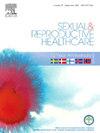平衡助产价值与农村现实:瑞典助产士对助产护理连续性的看法-定性研究
IF 1.7
3区 医学
Q3 PUBLIC, ENVIRONMENTAL & OCCUPATIONAL HEALTH
引用次数: 0
摘要
目的:尽管有强有力的证据表明助产护理的益处,但瑞典的助产护理连续性(MCoC)有限,特别是在农村地区。关于MCoC如何在瑞典农村环境中发挥作用,存在知识差距。因此,本研究旨在探讨助产士对MCoC模式及其在瑞典北部农村环境中的实施的个人和专业观点。方法采用自反性主题分析进行质性访谈研究。对14名从事产妇护理工作的助产士进行了半结构化访谈。结果发现MCoC具有明显的双重性,包括两个主要主题。在第一个主题“助产的内部条件”中,助产士报告说,在MCoC模式下工作将提供成就感,但也会带来重大挑战,她们觉得没有准备好迎接这些挑战。与孕妇建立相互信任的关系是一个主要的积极方面。第二个主题是“外部力量的影响”,强调了重大挑战,包括组织问题、人员短缺以及对工作与生活平衡的担忧。如果要继续实施该模式,跨专业合作和农村适应被认为是关键。对于MCoC在瑞典农村取得成功,至关重要的是要有一个支持性组织,认识到该模式的好处,并为助产士提供满足其专业和个人需求的工作条件。让助产士参与该模式的设计、促进跨专业合作以及使该模式适合农村环境也同样重要。解决组织挑战对于建立一个功能和可持续的模式至关重要。本文章由计算机程序翻译,如有差异,请以英文原文为准。
Balancing midwifery values with rural reality: Swedish midwives’ views of midwifery continuity of care – A qualitative study
Objective
Despite strong evidence of the benefits, Sweden has limited access to midwifery continuity of care (MCoC), particularly in rural areas. There is a knowledge gap regarding how MCoC would function in a rural Swedish context. Therefore, this study aimed to explore midwives’ personal and professional views on a MCoC model and its implementation within a rural context in northern Sweden.
Methods
A qualitative interview study using reflexive thematic analysis. Semi-structured interviews were conducted with fourteen midwives working in maternity care.
Results
The findings revealed a notable duality to MCoC, consisting of two major themes. In the first theme, ‘Internal conditions of midwifery’, midwives reported that working in a MCoC model would offer fulfillment but also present significant challenges, which they did not feel prepared to meet. Establishing a relationship of mutual trust with pregnant women emerged as a major positive aspect. The second theme, ‘The impact of external forces’, highlighted significant challenges, including organisational issues, staffing shortages, and concerns regarding work-life balance. Interprofessional collaboration and rural adaptation were considered key if the implementation of the model is to go ahead.
Conclusions
For MCoC to succeed in rural Sweden, it is essential to have a supportive organisation that recognises the benefits of the model, and provides midwives with working conditions that meet their professional and personal needs. Involving midwives in the model’s design, fostering interprofessional collaboration, and tailoring the model to rural settings are equally important. Addressing organisational challenges is crucial for establishing a functional and sustainable model.
求助全文
通过发布文献求助,成功后即可免费获取论文全文。
去求助
来源期刊

Sexual & Reproductive Healthcare
PUBLIC, ENVIRONMENTAL & OCCUPATIONAL HEALTH-
CiteScore
2.70
自引率
5.60%
发文量
73
审稿时长
45 days
 求助内容:
求助内容: 应助结果提醒方式:
应助结果提醒方式:


